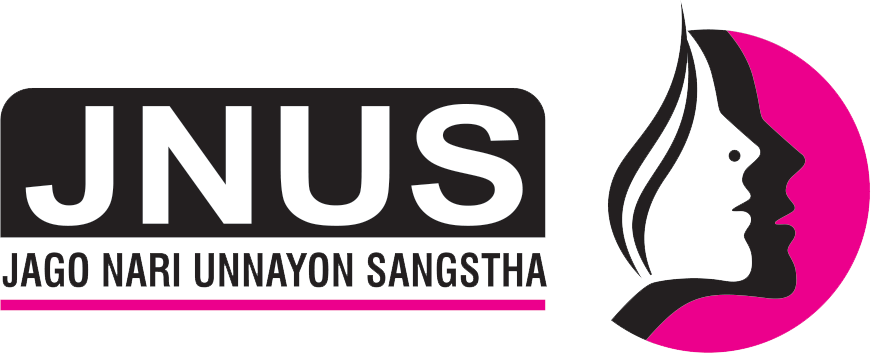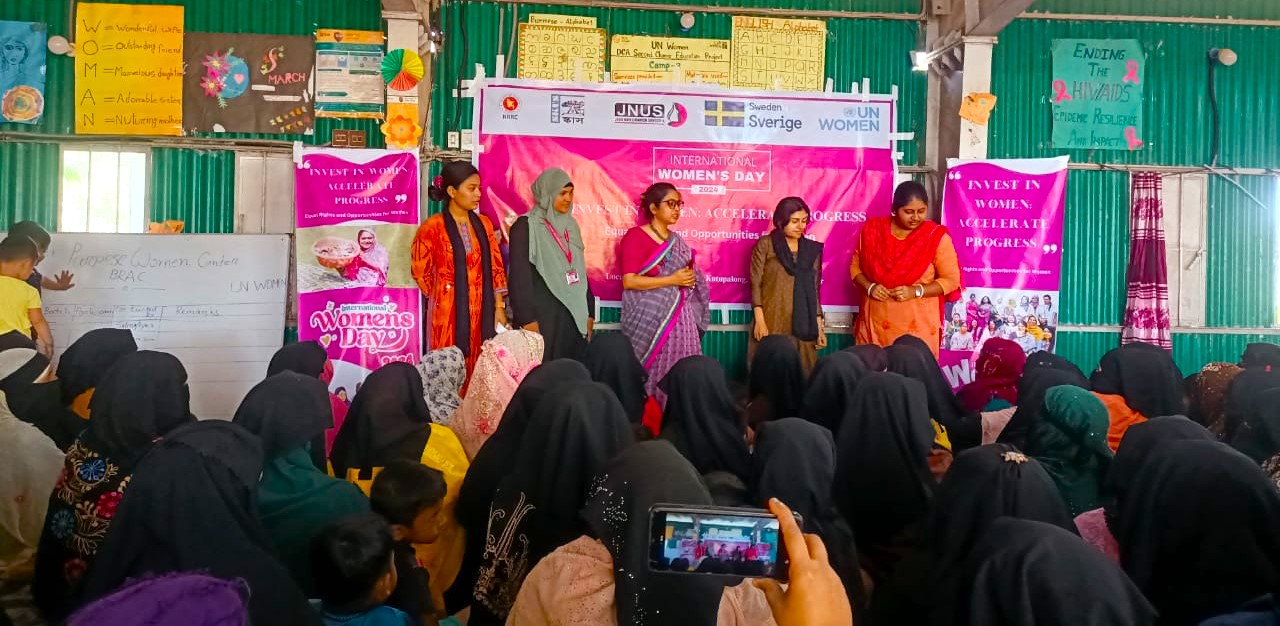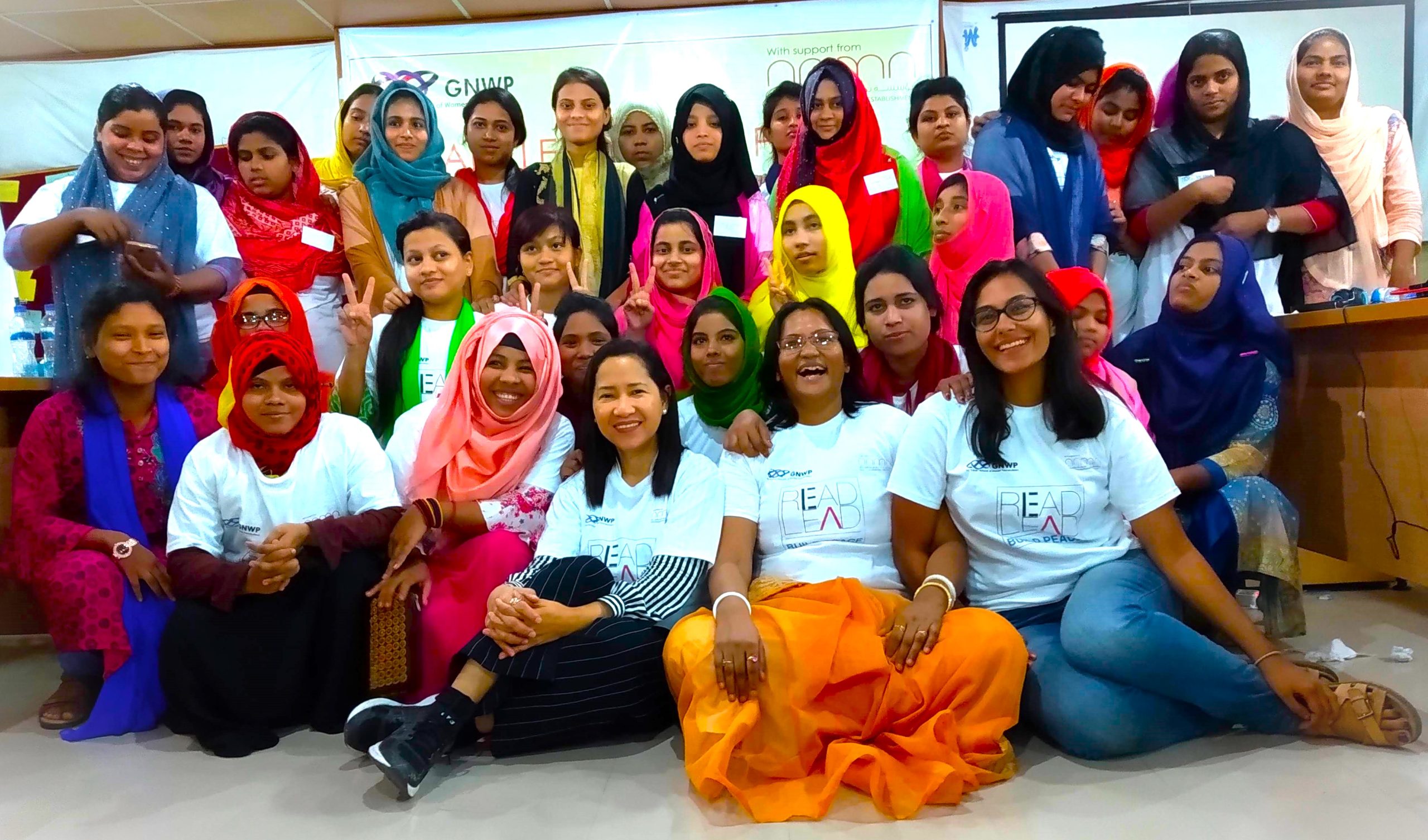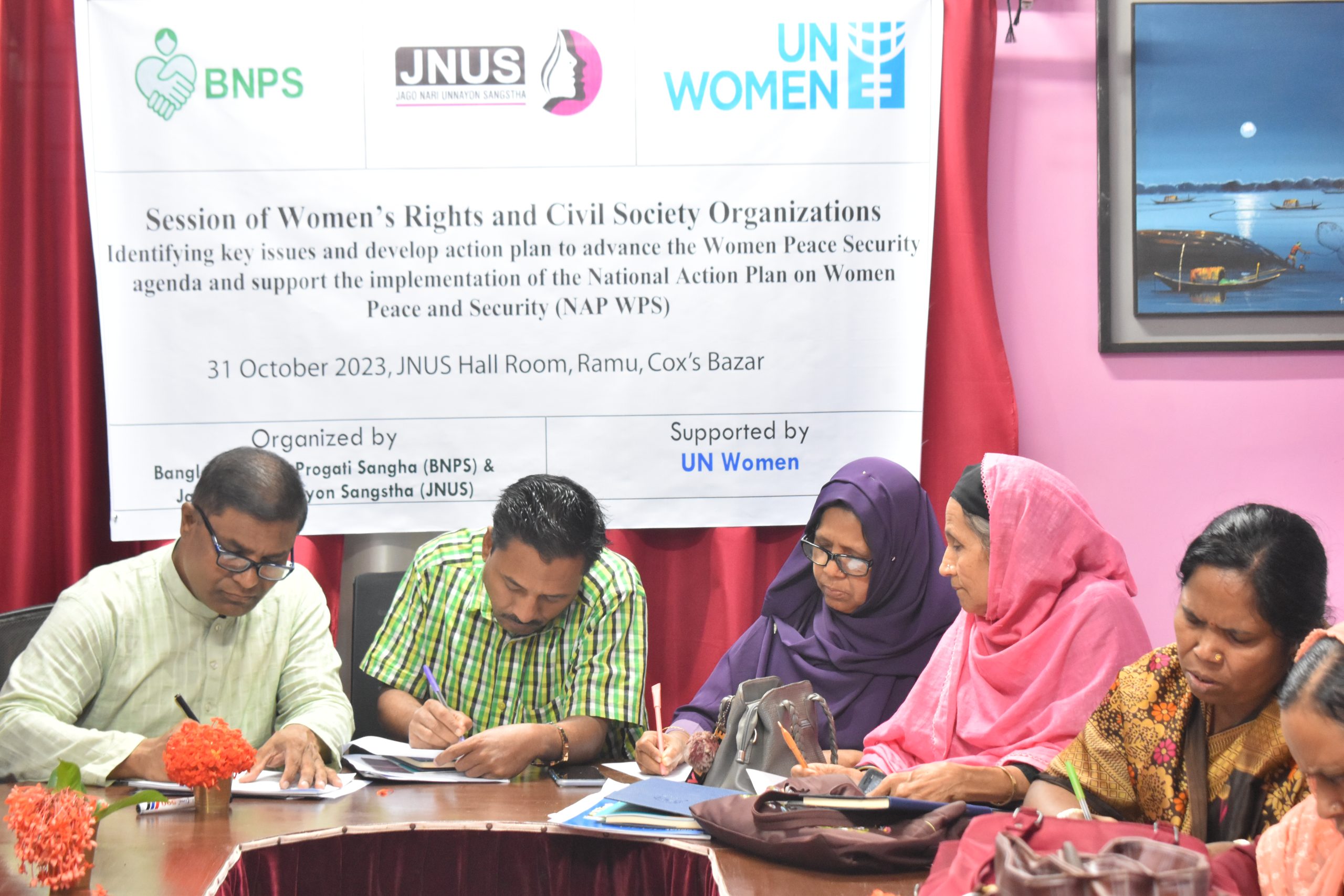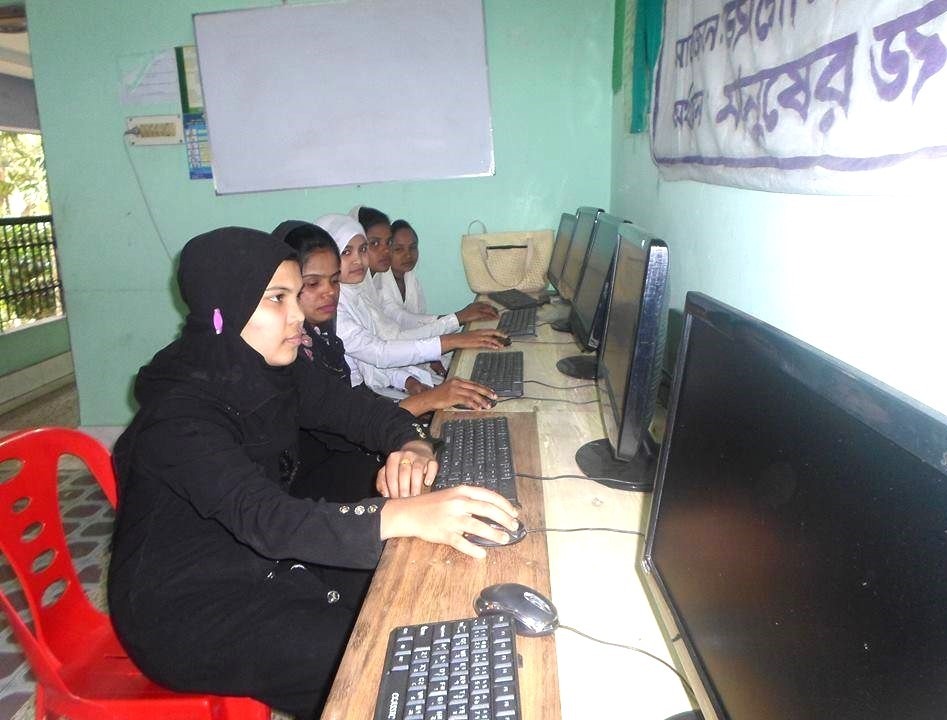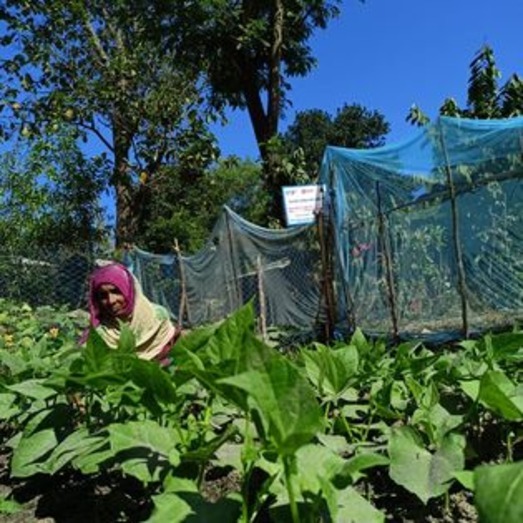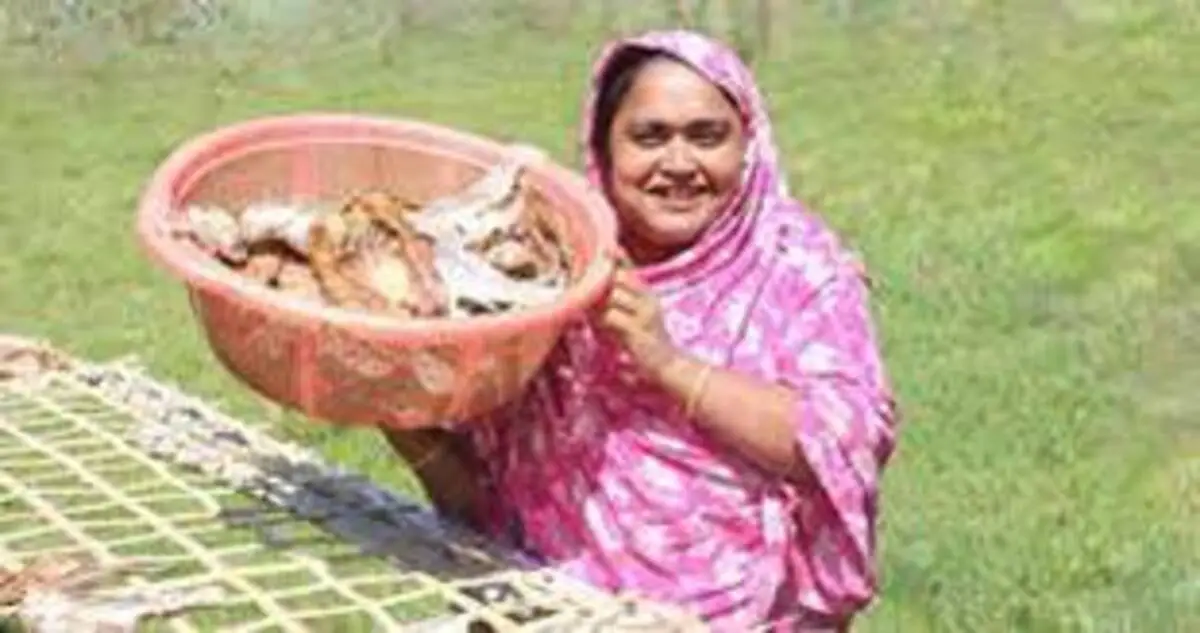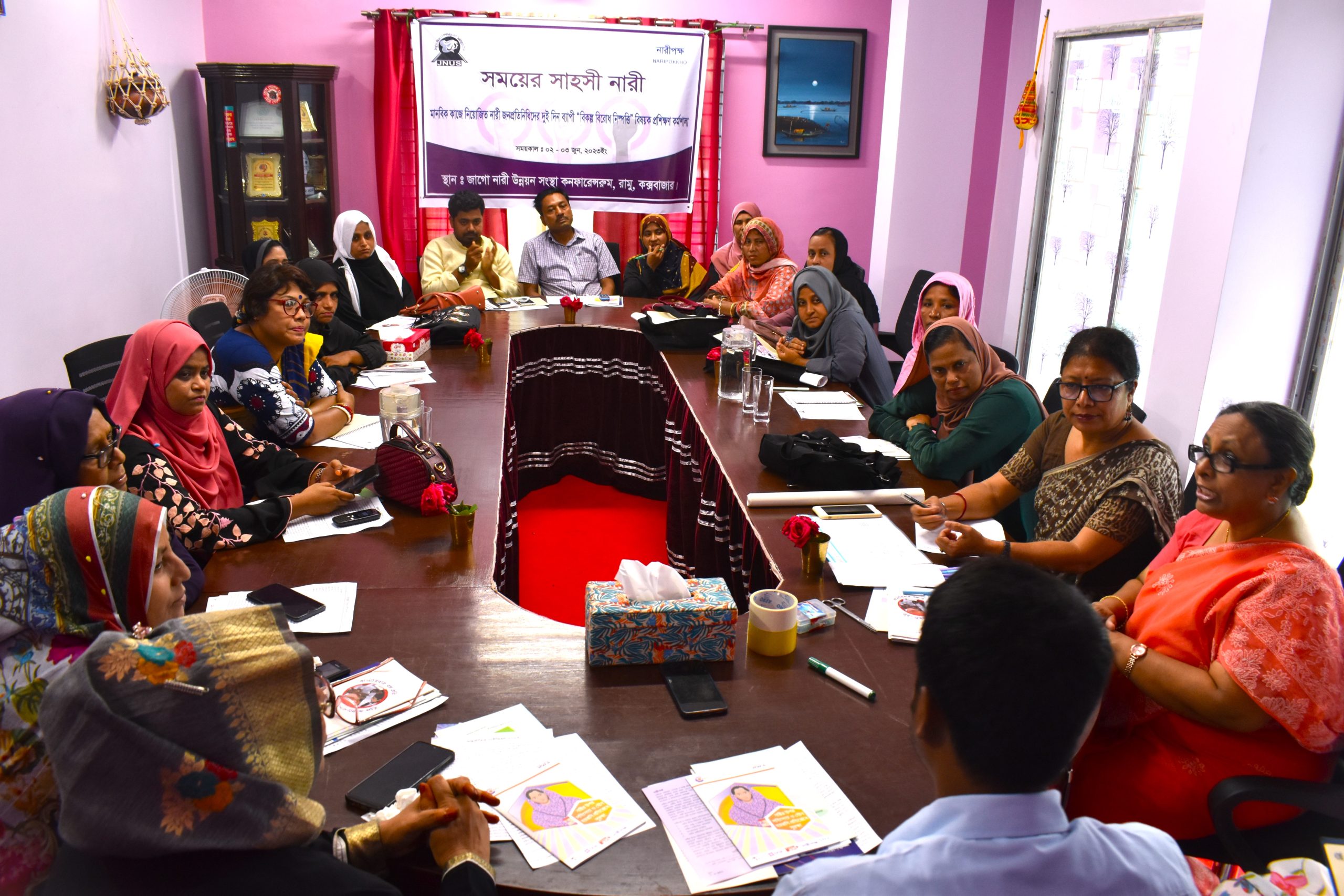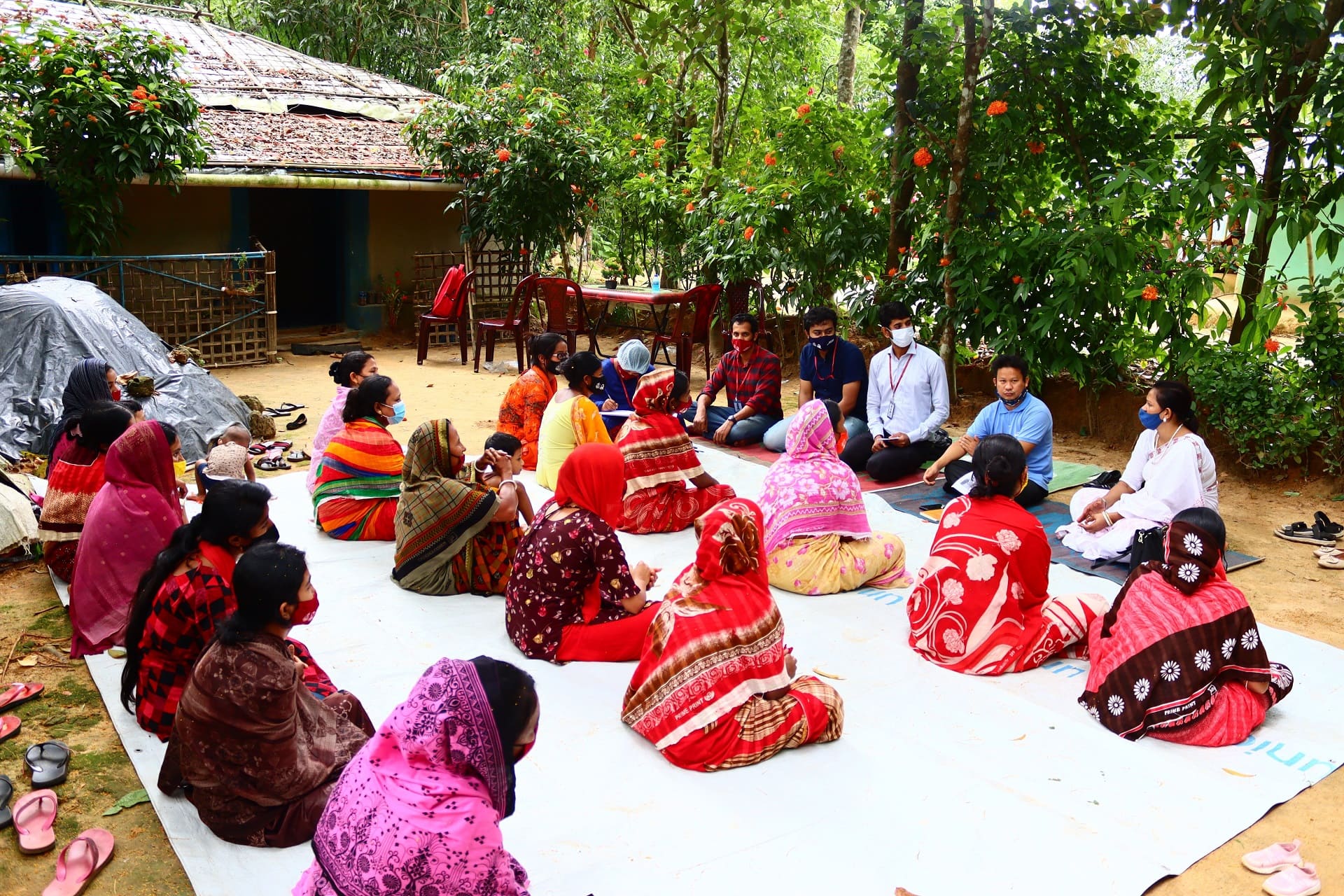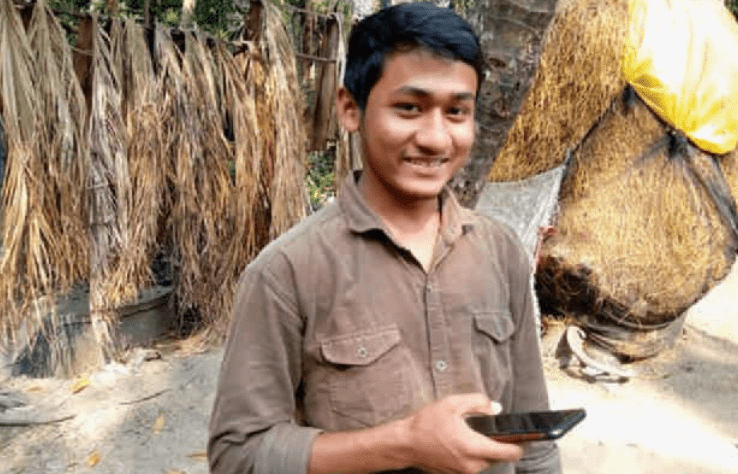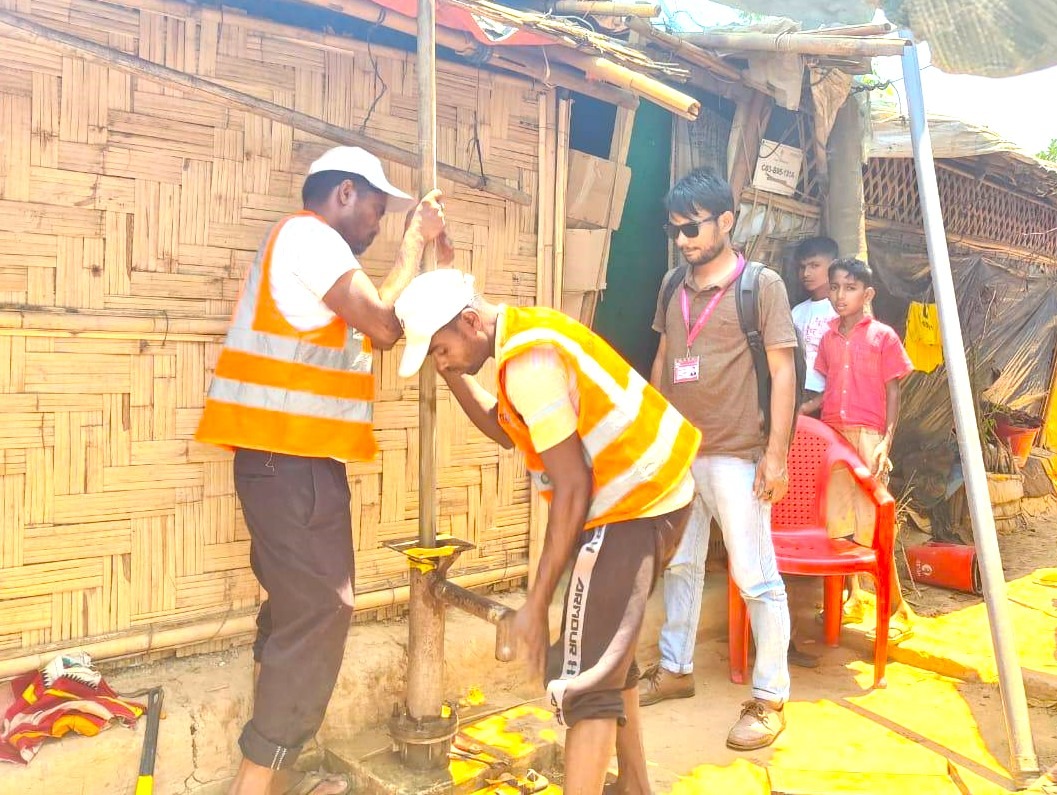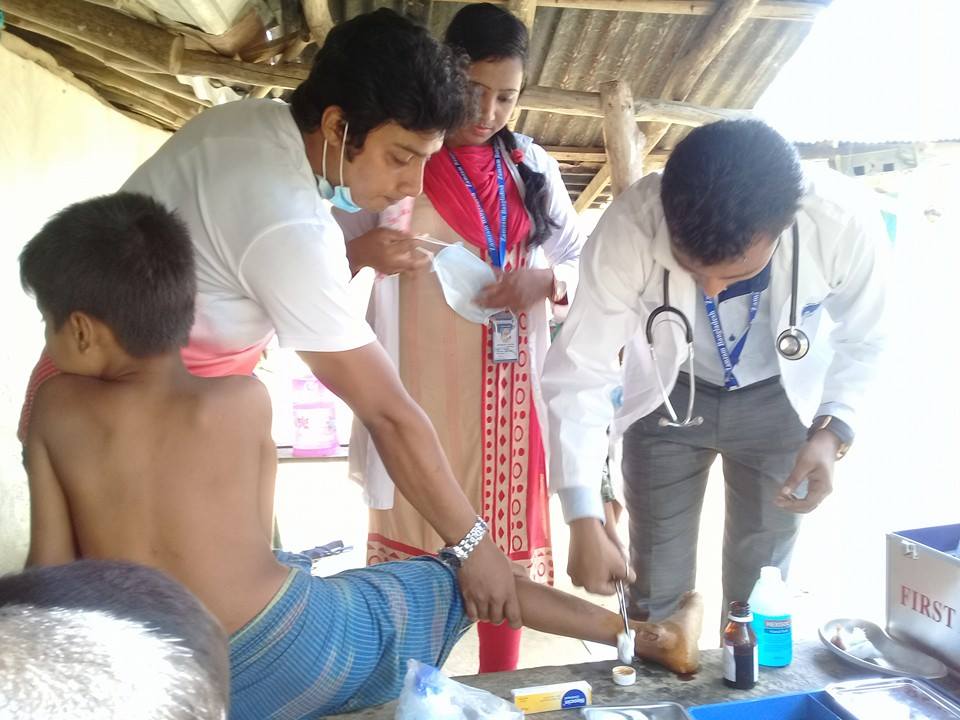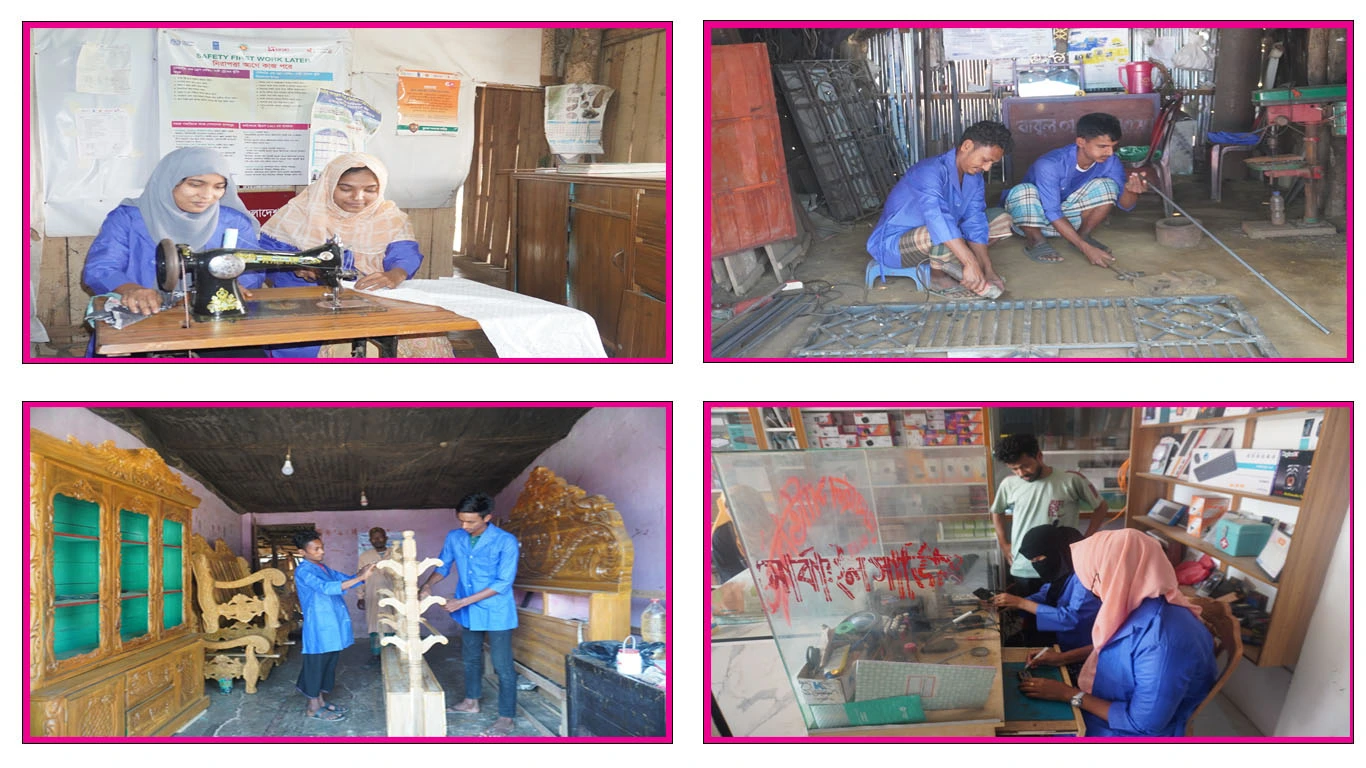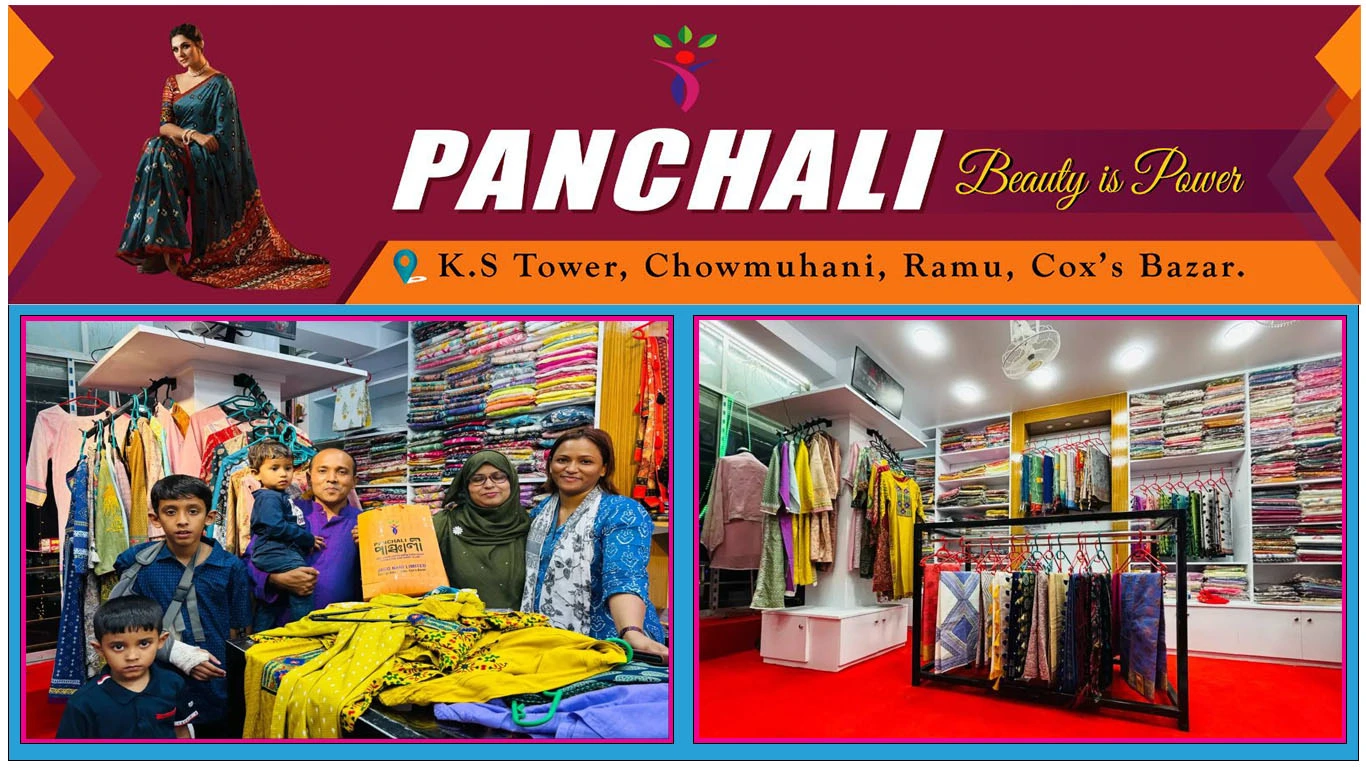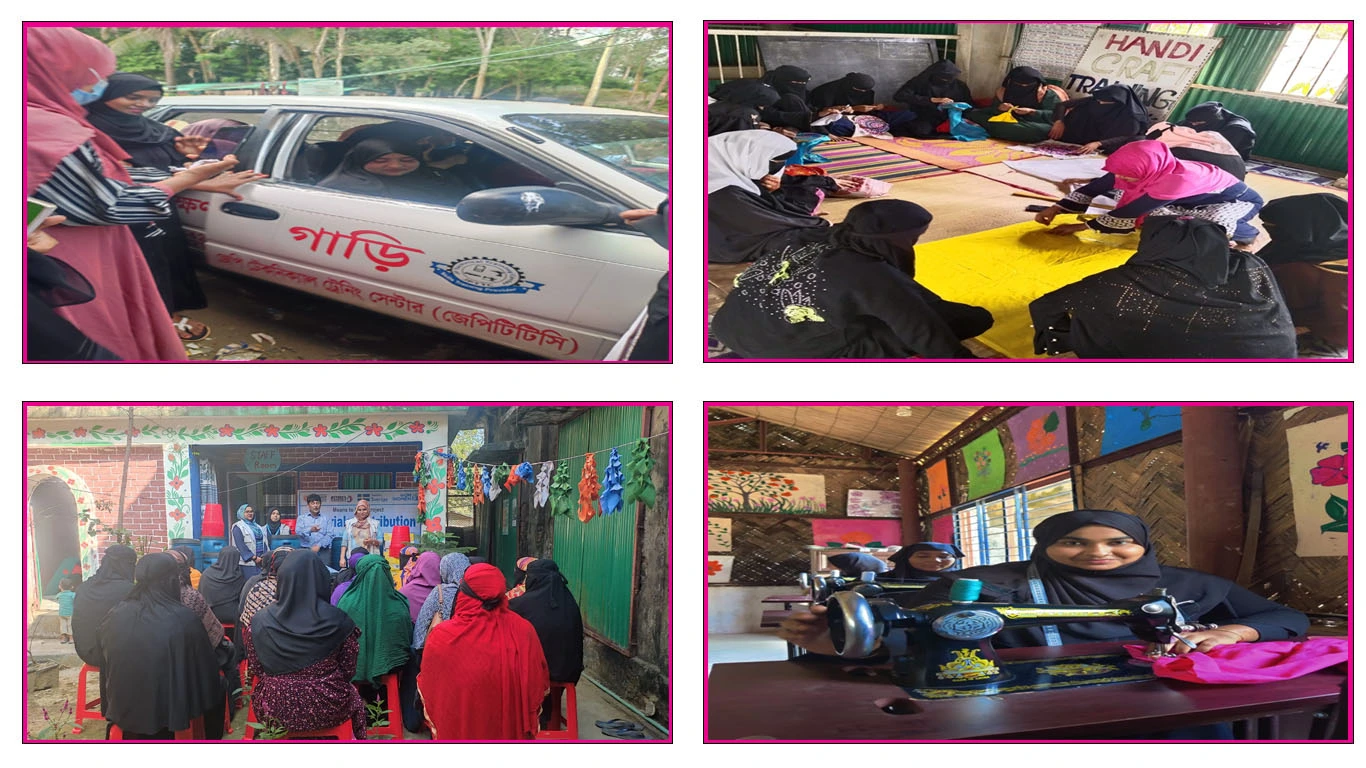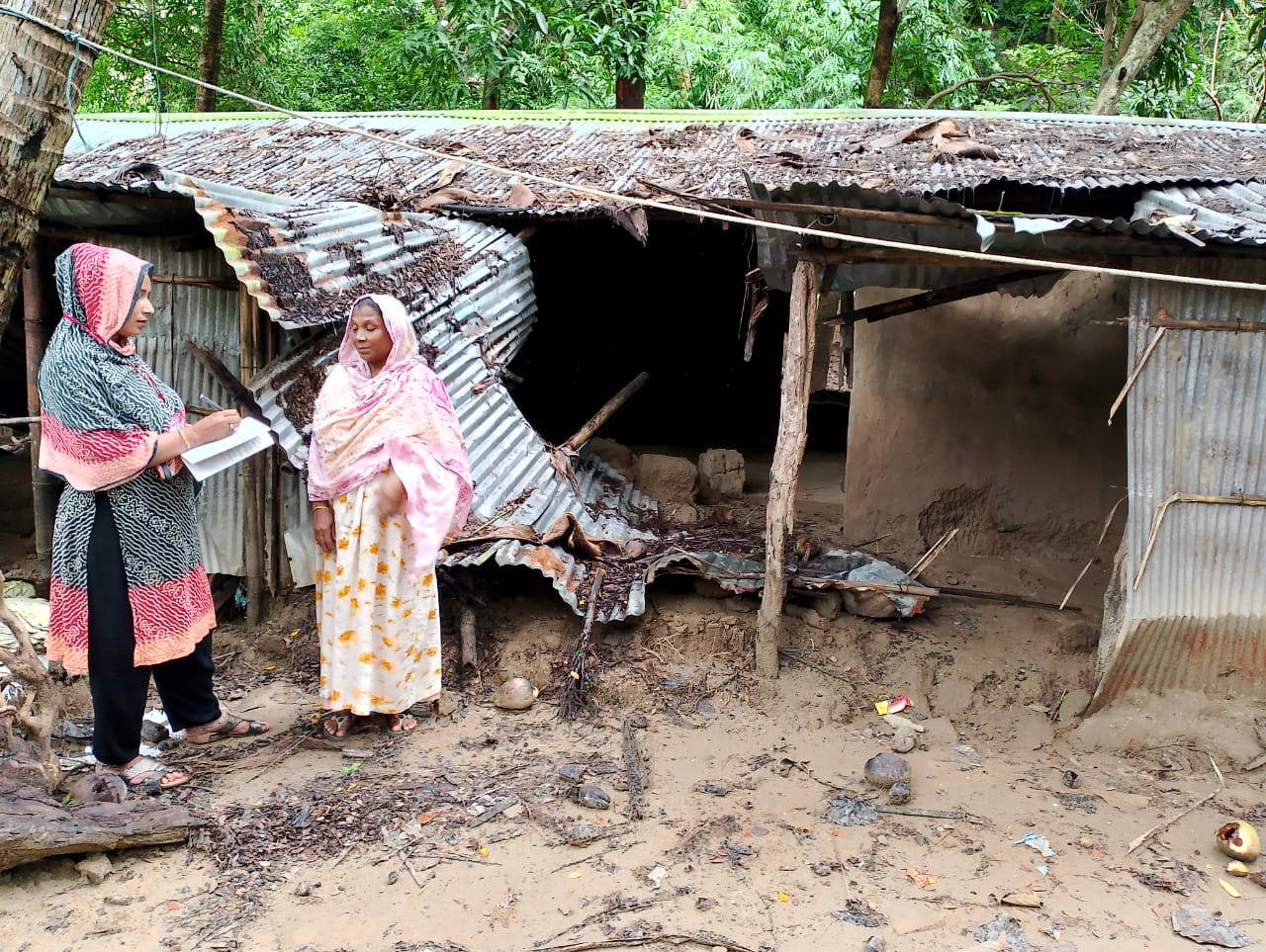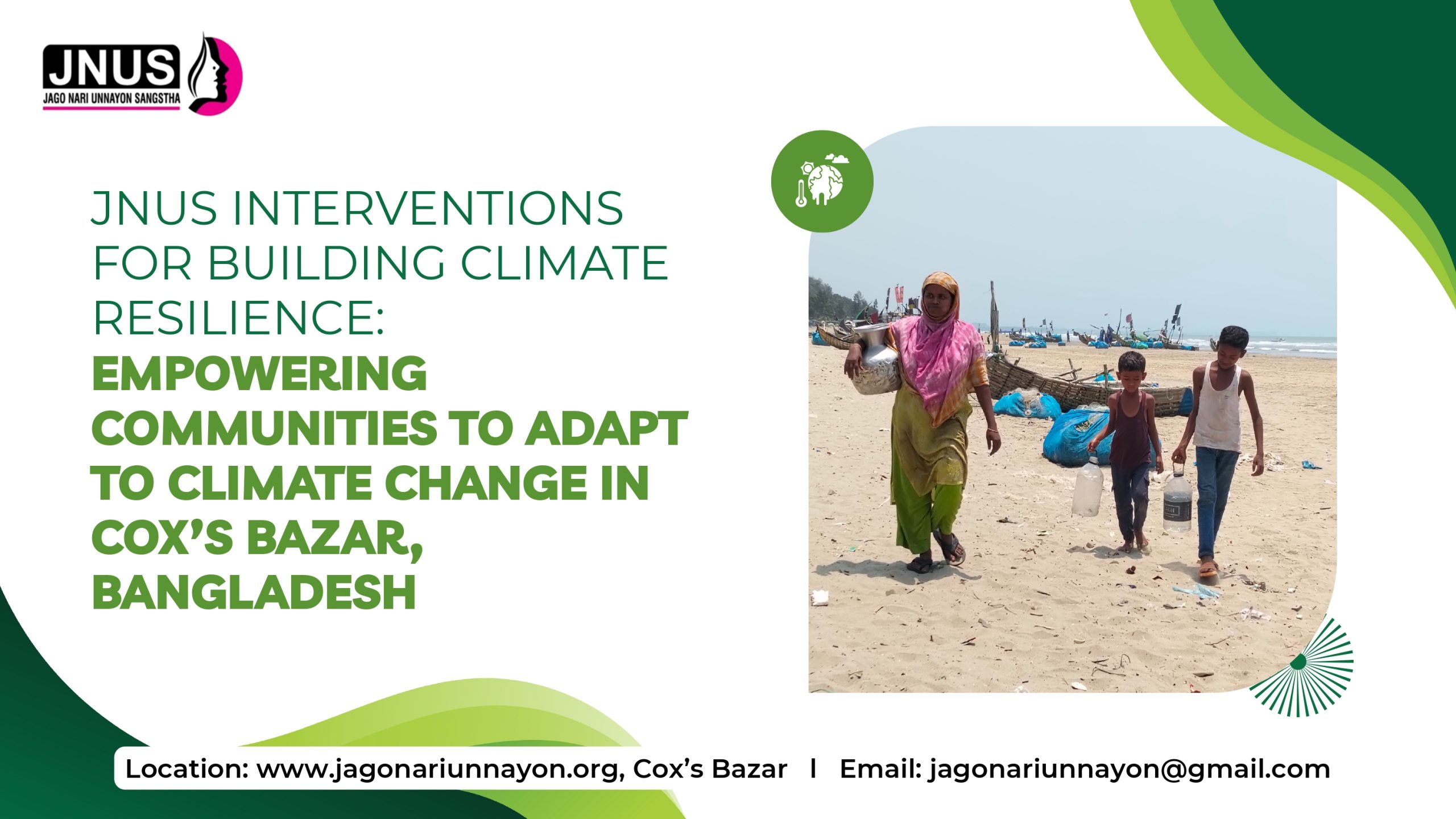What We Do
Gender Equality & Women Empowerment
Means to Lead: Jago Nari Unnayon Sangstha (JNUS), in sub-partnership with SKUS, funded by UN Women & SiDA, has been administering the activities of Multi-Purpose Women Centers (MPWC) at Camp-3, Camp-5, Whykong Union of Teknaf, and Cox’s Bazar. The activities of the MPWCs include leadership training, livelihood activities, literacy education, psychosocial services, case management, healthcare services, and counseling. A multi-dimensional and holistic approach has been adopted to build the leadership capacity of women and girls in the Rohingya and host communities and expand their livelihood opportunities.
Young Women Leaders Forum (YWLF): The YWLF of JNUS is a learning platform of young women leaders in Cox’s Bazar. The members of this Forum is designing and delivering programmes to prevent GBV and empower women and girls. The activities of this Forum includes adult women’s learning programme, awareness and campaign through online and offline platforms, street drama, dialogue and discussion. These activities aim to educate and raise awareness about GBV and provide women and girls with the necessary skills and knowledge to protect themselves. The YWLF of JNUS believes that by empowering women and girls, they can create a safer and more equal society. Through their efforts, they are working towards breaking the cycle of violence and promoting gender equality in Cox’s Bazar.
Promotion of Women, Peace and Security (WPS) Agenda: JNUS, in association with local partners and stakeholders, has been organizing a range of initiatives including capacity building, advocacy dialogues, discussions and rally to implement the agenda of WPS at the local level in Cox’s Bazar. The objective is to sensitize relevant actors and stakeholders regarding various issues of the agenda of WPS to promote social cohesion across communities and institutions. Please note that JNUS is one of the member organizations along with other development partners for implementing WPS agenda at the local level.
Capacity Building through Livelihood and Skills Development Programme: One of JNUS’s main goal is to empower women and girls in vulnerable areas through programs that increase their skills and means of livelihood. Because of this, the organization has been conducting a variety of skills and livelihood development programs since 2019 in Cox’s Bazar, Bangladesh, using funds from several development partners as well as money from its own resources in Ramu Uapzilla, Ukhiya Upazilla, and Sadar Upazilla. For vulnerable women and girls, including as widows, abandoned women, victims of drug and human trafficking, and victims of gender-based violence, JNUS designs and implements livelihood programs. Handicrafts, carpentry, mobile repair/maintenance, and tailoring and sewing are all included in the livelihood and skills development program. As part of their empowerment efforts, the group trains disadvantaged and at-risk women and girls in handicrafts and mini-garments.
Climate Justice and DRR
Supporting Female Farmers through Climate Resilient Cultivation: JNUS is assisting female farmers in vulnerable regions like Ukhiya Upazilla by providing training, counseling, and coaching on sustainable farming and cultivation. This helps ensure food security and economic stability, particularly in the affected area due to the Rohingya population. By promoting high-yielding seeds and homestead gardening, the farmers diversify their agricultural production, improve nutrition, and increase income. By adopting climate-resilient practices, they reduce the need for synthetic fertilizers and pesticides, minimizing their carbon footprint. The increased productivity and income from sustainable agriculture also reduce the pressure on farmers to convert natural habitats into agricultural lands. JNUS is now developing local value chain and market linkages using digital platforms to enhance climate-resilient agricultural products.
Promoting Eco-Friendly Livelihood of the Women Entrepreneurs in the Fishing Community: JNUS has secured a seed fund to strengthen women entrepreneurs’ livelihoods using renewable energy, particularly in the face of climate change. It has already designed an intervention programme to support women in the fishing industry by providing solar draying machines and solar eggs incubators to diversify their livelihoods during off-season fishing and protect their rights in livelihood. These machines help dry fish quickly and are environmentally friendly. Women will also receive entrepreneurship, and financial literacy skills to strengthen their livelihoods. They will also build networks with potential buyers, investors, and local businessmen, establish a smooth production and supply chain, and a sustainable business channel for women’s entrepreneurship in the fishing community. JNUS has already received generous support from CFLI during the initial intervention of this program.
Social Cohesion and Peace-Building
Conflict Resolution and Peace-Building Skills: JNUS is promoting conflict resolution and peace-building skills through a human security approach, involving all relevant actors and stakeholders. It organizes trainings, empowers women, youth, civil society, the media, teachers, and religious leaders, and supports local government in peaceful conflict resolution. JNUS has formed social groups trained in effective communication, negotiation techniques, and conflict resolution strategies, promoting understanding and empathy. Their efforts aim to foster mutual trust and mutual understanding, ensure the well-being and security of all individuals in the community, and promote a culture of peace.
Prevention of Radicalization and Violent Extremism through Building Community Resilience: JNUS implemented a number of projects to prevent the drivers of radicalization and violent extremism across communities and institutions. JNUS empowered teachers, religious leaders, youth, women, media personnel and members of civil society providing training, resources and provided inclusive platforms for building trust organizing intra and Inter-Community engagement. These initiatives aimed to create a strong network of individuals who could identify and address the root causes of radicalization. Additionally, JNUS focused on promoting tolerance, understanding, and respect among different religious and ethnic groups. They fostered dialogue, encouraged open discussions, and facilitated the exchange of ideas to promote peaceful coexistence and prevent the spread of extremism. Overall, these efforts helped in creating a more resilient and harmonious society, free from the influences of radicalization and violent extremism.
Peaceful Use of Technology and Social Media: JNUS has been conducting training programmes among the youth enabling them for peaceful use of social media for preventing digital fraud and cyber bullying against women and girls. The youth are being empowered to sensitize communities and institutions regarding various aspects of digital literacy organizing dialogues and discussions. These training programmes have proven to be successful in increasing awareness and knowledge among the youth about the potential dangers of misuse of social media. By equipping them with the necessary skills, JNUS is effectively reducing the instances of digital divide, fraud, and cyberbullying in society. As a result, the youth are becoming ambassadors of digital literacy, actively promoting responsible and safe online behavior within their communities and institutions.
Water, Sanitation and Hygiene
JNUS is committed to promote gender responsive WASH intervention in humanitarian response in Cox’s Bazar. Its regular training, campaign and intervention improved knowledge and understanding about personal protection and good hygiene behaviors and increased access of the women and girls to hand washing facilities. JNUS started its journey with BRAC installing WASH facilities in the refugee camps but later enhanced its intervention among the Rohingya and host community funded by the ActionAid Bangladesh. JNUS also installed disaster resilient infrastructure to protect the quality of the water supply and treatment centers. This support was also helpful to prevent the outbreak of water and vector borne diseases during monsoon and to ensure the safety of the refugee population living in settlements in the Cox’s Bazar area. While developing these wash facilities, JNUS wash team also ensured the private spaces for the women within each wash facilities in the refugee camp.
Rohingya Women in Promoting a Gender Responsive WASH Intervention: Jago Nari Unnauyon Sangstha (JNUS), supported by BRAC under the Pooled Fund (Australian Aid & GAC), has been implementing a project entitled, “Rohingya Women in Promoting a Gender Responsive WASH Intervention in the Humanitarian Response in Cox’s Bazar.” The aim of this project is to empower Rohingya young women and girls in Blocks B & D of Camp 3 by providing platforms and resources. The activities of this project include training on leadership development, construction of communal latrines and bath spaces, repair and maintenance, and advocacy and awareness building activities. The project emphasizes women and girls’ involvement in planning and implementation to ensure gender responsiveness.
Health
Primary Health Clinic Services: JNUS provides regular primary health clinic services to remote and underserved areas including refugee camps and host areas that lack access to proper medical facilities. These clinics are equipped with trained medical professionals who are able to provide basic healthcare services such as check-ups, vaccinations, and minor treatments. By bringing healthcare directly to these communities, JNUS aims to improve the overall health and well-being of individuals who would otherwise struggle to receive proper medical attention. In addition to providing basic healthcare services, JNUS also offers health education programs to empower individuals with the knowledge and tools to take better care of their health. These programs cover topics such as hygiene practices, disease prevention, and family planning. By addressing both the immediate medical needs and the long-term health education of these communities, JNUS strives to create sustainable improvements in their overall health outcomes. Through partnerships with local organizations and government agencies, JNUS is able to reach a larger population and make a significant impact on their healthcare access and outcomes.
Skills Development & livelihood
Skills Enhancement (PRISE) Project In Collaboration : Since 2022-2025, JNUS has been successfully executing the Partnership Reinforcement for Integrated Skills Enhancement (PRISE) project in collaboration with BRAC that was initially financed by the Swiss Agency for Development and Cooperation (SDC), but now by the International Labor Organization and the UNDP. Launched in two unions of Ramu Upazila and two union of Cox’s Bazar Town, the project has tried to offer vocational skills to vulnerable populations, school dropouts (14–18 years), divorcees (18–20 years), GBV survivors and persons with disability (14–20 years), with basic vocational training. Training was conducted on Mobile Phone Servicing (MPS), IT Support Services, Tailoring and Dressmaking (TDM), Beautification, AC, Refrigerator & Freezer Repairing, TV, Welding, and Wood Furniture making. Two additional training centers have been established for this project, which has been providing training for 200 trainees at the moment. Upon completion of the first phase of this project, most trainees were absorbed in employment, whereas others became employed on their own, thus contributing to household earnings and community uplift.
Panchali : To further increase the sustainability and market reach of its livelihood activities, JNUS established “Panchali”, a social business venture dedicated to empowering women and girls from Rohingya and host communities. Panchali is a market outlet for women’s products produced through participation in JNUS training activities, where their products are showcased and sold. This project not only enhances earning opportunities and economic independence but also facilitates entrepreneurship and exposure for marginalized women. By closing the gap between skills development and market opportunities, Panchali is a key driver in converting training into tangible, sustainable economic empowerment.
Our social media link:https://www.facebook.com/panchaliJNL
Means To Lead : In 2024, JNUS, in collaboration with UN Women, launched the “Means to Lead” livelihood intervention among host communities in Whykong Union of Teknaf and Rohingya women living in Camps 3 and Camp 5. The project, which is being implemented through Multi-Purpose Women Centres (MPWCs), provides vocational and informal training as per market demands. Training has been imparted to 200 women in tailoring, handicraft, dry fish processing, and driving cars. Apart from that, this project has been emphasizing on sustainability through business start-up support and market linkages facilitation. Products manufactured at MPWCs are promoted and marketed through “Panchali”, the social enterprise wing of JNUS, and in local exhibitions and fairs. The project will ensure certification and employment of car driving trainees and will be expanded in 2025 to baking and beautification training, with technical support from UN Women, funded by SiDA and Japan Embassy.
Research And Advocacy
JNUS: Building Climate-Resilient and Inclusive Communities in Cox’s Bazar
Jago Nari Unnayan Sangstha (JNUS) strengthens local resilience in Cox’s Bazar through gender-responsive, rights-based, and community-driven approaches addressing gender-based violence, safety, security, and climate challenges. Its initiatives focus on how climate change intensifies insecurity and displacement among coastal and border communities—particularly impacting women, ethnic minorities, and fishing groups. Through projects supported by partners such as CFLI, Turning Tide, UN Women, MJF, UFV, and GWI, JNUS advances women’s empowerment, legal literacy, and leadership in climate adaptation and local governance. By equipping women with skills, voice, and access to networks, JNUS fosters inclusive, participatory, and gender-transformative resilience across vulnerable communities.
